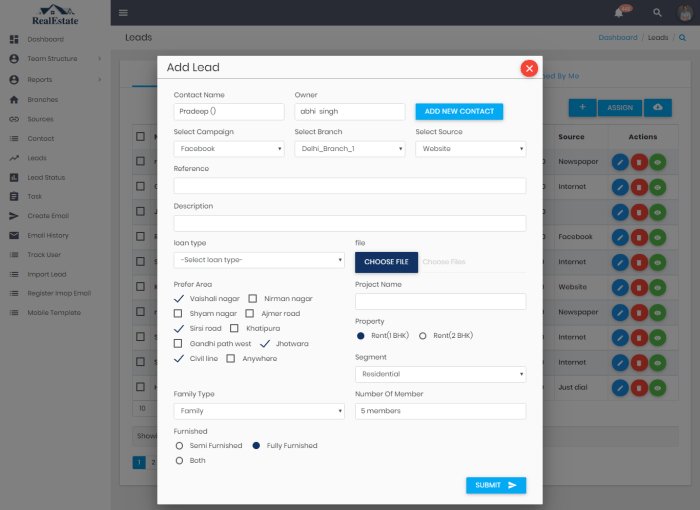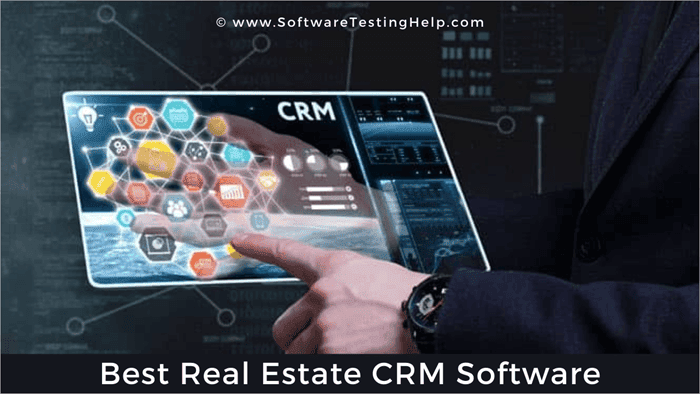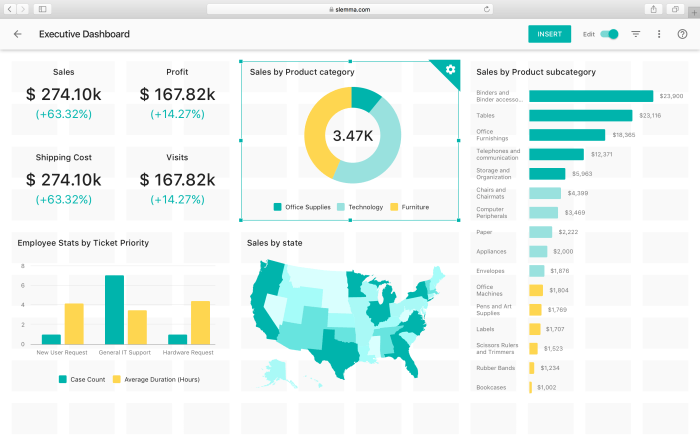CRM software for real estate revolutionizes how agents and brokers manage clients, deals, and communications. It’s more than just a database; it’s a strategic tool that fosters stronger relationships and drives more efficient workflows.
This sophisticated software helps agents track leads, manage properties, and automate essential tasks, ultimately leading to increased productivity and profitability in the real estate market. A robust CRM system allows for detailed client profiles, automated follow-ups, and personalized communication, maximizing client satisfaction and nurturing potential buyers and sellers.
Real estate is a dynamic industry, demanding sophisticated tools to manage leads, track deals, and nurture client relationships effectively. This comprehensive guide delves into the world of CRM software for real estate, exploring its benefits, features, and how it can significantly improve your business operations. We’ll also cover choosing the right CRM and maximizing its impact on your real estate success.

Source: vscrm.in
Understanding the Importance of CRM in Real Estate
In the competitive real estate market, maintaining organized records, efficiently managing communication, and nurturing leads are crucial for success. CRM software for real estate businesses streamlines these processes, providing a centralized platform to manage all aspects of your client interactions. This leads to improved efficiency, increased profitability, and a better client experience. A well-implemented CRM system can significantly boost your agent productivity and your overall business performance.
Key Features of Real Estate CRM Software: Crm Software For Real Estate
Effective real estate CRM software goes beyond basic contact management. It offers a suite of features designed to optimize various aspects of your business. These include:

Source: softwaretestinghelp.com
Lead Management and Tracking
A robust lead management system allows you to capture, categorize, and track potential clients. Features like lead scoring, automated email sequences, and lead nurturing strategies are crucial for converting leads into paying clients. Effective lead management is a cornerstone of successful real estate businesses.
Property Management
This feature allows you to store detailed information about properties, including listings, photos, and relevant details. It facilitates quick access to property information for clients and agents, streamlining the property search process.
Client Relationship Management
CRM software helps build strong client relationships by allowing you to store detailed client information, track communication history, and personalize interactions. This feature is crucial for building trust and fostering long-term client relationships. It also helps manage client needs and expectations effectively.
Marketing Automation, Crm software for real estate
Integrating marketing automation tools into your CRM can significantly boost your marketing efforts. Automating tasks like email marketing, social media posting, and follow-ups can save valuable time and resources, allowing you to focus on client interactions.
Reporting and Analytics
Real estate CRM software provides insightful reports and analytics on various aspects of your business. This data-driven approach helps you understand performance trends, identify areas for improvement, and make informed business decisions. Data analysis is a critical aspect of modern real estate operations.
Choosing the Right CRM Software for Your Real Estate Business
The market offers a variety of CRM solutions for real estate. Consider factors like budget, scalability, specific features, and integration capabilities when selecting the right one for your needs. Your business size, operational style, and future goals should guide your decision. Read reviews from other users to gain a better understanding of how different CRMs perform in practice.
Maximizing CRM Impact for Real Estate Success
Implementing a CRM system is only the first step. Training your team and fostering a culture of using the system consistently is crucial. Regular updates, integrations, and staff support will help you maximize the potential of your chosen software. A strong support system is vital for successful implementation.
Case Studies and Success Stories
Numerous real estate companies have successfully implemented CRM systems and experienced positive results. Researching successful case studies can provide valuable insights and inspiration for your own implementation. Look for success stories of companies with similar business models to yours.
Frequently Asked Questions (FAQ)
- How much does CRM software cost? Pricing varies greatly depending on the features, the number of users, and the chosen vendor. Contact vendors for specific pricing.
- How long does it take to implement a CRM system? Implementation timelines depend on factors such as system complexity, team training, and data migration needs. Plan for a reasonable implementation period.
- Can CRM software integrate with other real estate tools? Many CRM systems offer integrations with other popular real estate tools, like property management software, marketing platforms, and accounting systems. Look for compatibility.
- How do I train my team to use the CRM effectively? Provide comprehensive training materials, hold regular workshops, and offer ongoing support to your team. Encouraging usage is essential.
Conclusion
CRM software is no longer a luxury but a necessity for thriving in today’s competitive real estate market. By understanding the benefits, key features, and considerations for choosing the right system, you can leverage CRM to optimize your business processes, build stronger client relationships, and achieve sustainable success.
Call to Action
Ready to take your real estate business to the next level? Explore the diverse range of CRM solutions tailored for real estate professionals. Visit our website for a free demo and discover how our CRM software can transform your business operations.
Note: This is a sample article. For a more comprehensive and detailed article, extensive research and additional resources should be consulted.

Source: technologyadvice.com
In conclusion, implementing CRM software for real estate is a smart investment that can significantly improve operational efficiency, client engagement, and overall business performance. This sophisticated technology equips real estate professionals with the tools needed to navigate the complexities of the market and achieve exceptional results.
FAQs
How much does CRM software for real estate typically cost?
Pricing varies significantly based on features, user count, and chosen service provider. It’s essential to compare different options and consider the long-term value proposition alongside initial costs.
What are some common integrations available with real estate CRM software?
Many CRM platforms seamlessly integrate with popular property management systems, email marketing tools, and other essential real estate software, streamlining workflows and improving data sharing.
Can CRM software for real estate help with marketing efforts?
Yes, CRM systems often include marketing automation features, allowing agents to tailor campaigns based on client profiles, preferences, and engagement history. This targeted approach enhances campaign effectiveness.
Is customer support readily available for CRM software for real estate?
Reputable CRM providers offer comprehensive customer support, including tutorials, FAQs, and dedicated support teams to address any questions or technical issues that may arise.